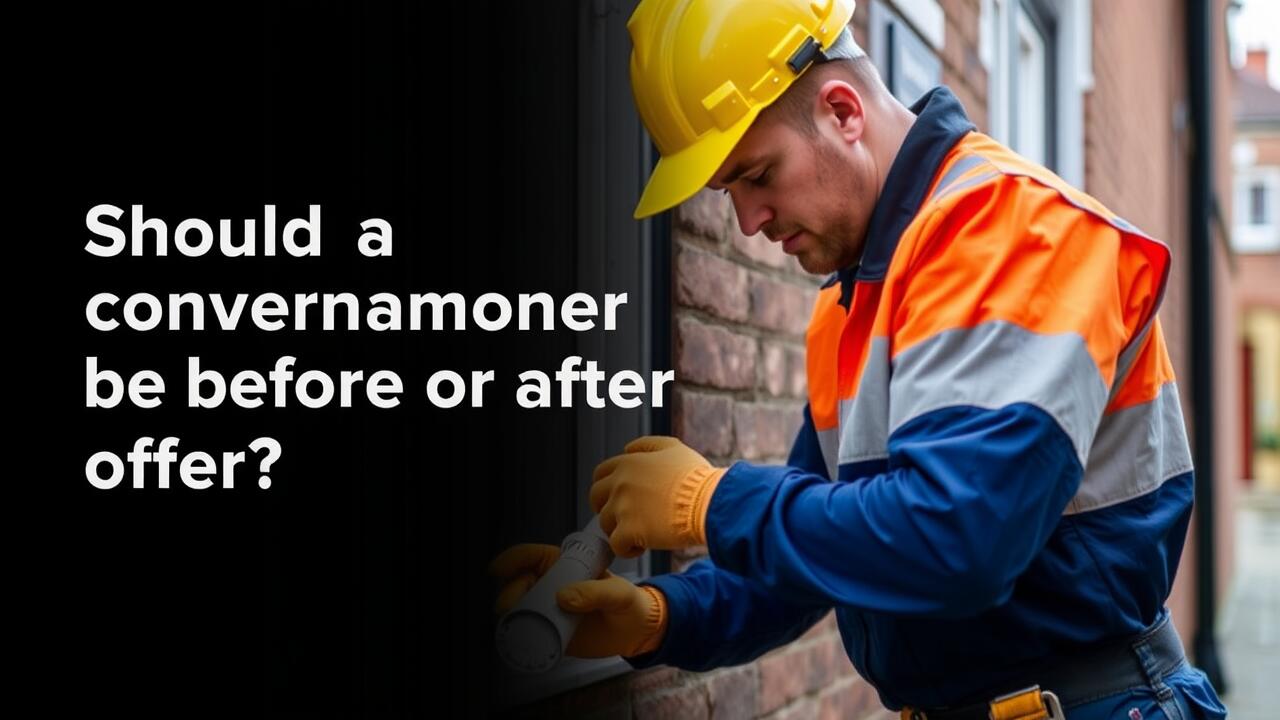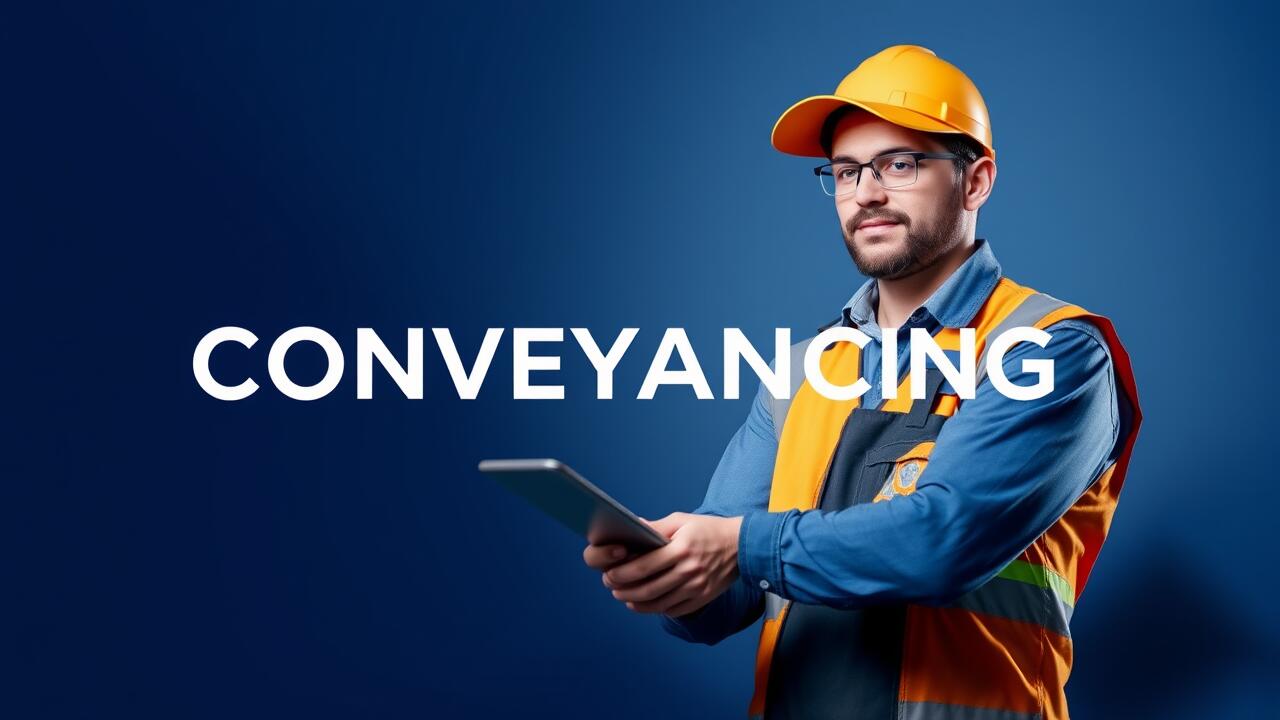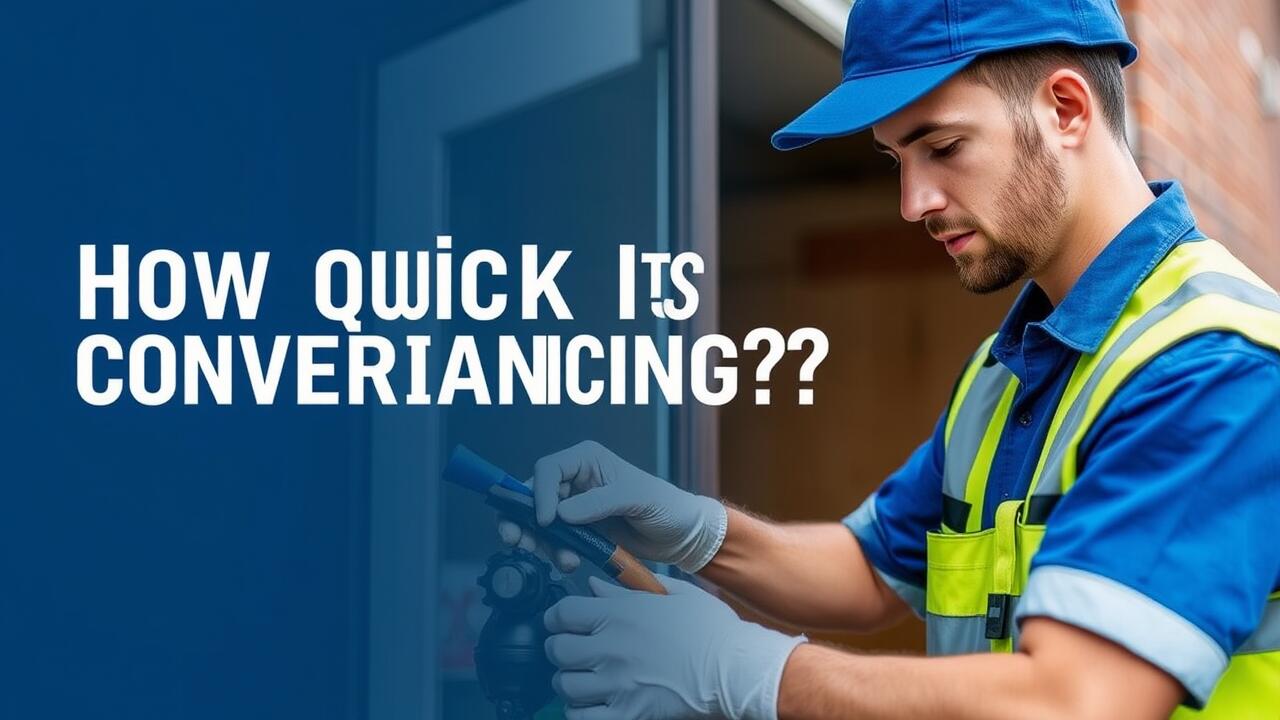
Evaluating Your Offer with a Conveyancer
Engaging a conveyancer prior to making an offer can provide valuable insights into the property and its legal status. Their expertise allows you to identify any potential issues that may affect your decision. By examining title documents and local restrictions, a conveyancer can highlight factors that could influence the offer amount or terms. This level of due diligence ensures that buyers are well-informed and can avoid any unexpected challenges later in the process.
Once you have determined your offer, working with a conveyancer helps ensure that the conditions you intend to include are appropriate and enforceable. They can guide you on standard practices and recommend specific conditions based on your unique situation. This includes aspects like subject-to-finance clauses or due diligence periods, ensuring all your bases are covered during negotiations. A conveyancer’s role is integral to protecting your interests, making their involvement significant from the outset.
How Conveyancers Assess Offer Conditions
Conveyancers play a critical role in evaluating the conditions associated with an offer. They carefully review the terms set forth by both the buyer and the seller, ensuring that all contractual obligations are clearly understood. As part of conveyancing, they check for any potential issues that could affect the transaction, such as encumbrances on the property or zoning restrictions. This detailed assessment not only safeguards the buyer's interests but also ensures compliance with legal requirements.
In addition to reviewing offer conditions, conveyancers offer guidance on making educated decisions throughout the buying process. They provide insights into market value and help identify any red flags that may not be immediately apparent to the parties involved. Their expertise in conveyancing ensures that prospective buyers are not blinded by appealing offers, allowing them to make informed choices that align with their long-term goals.
Conveyancing Tasks to Complete Post-Offer
Once an offer is accepted, the conveyancing process accelerates into high gear. A conveyancer steps in to carry out essential tasks, including conducting property searches and reviewing the contract of sale. These actions help identify any potential issues that could affect the purchase. This phase is crucial, as conveyancers ensure all legal obligations are fulfilled before settlement.
Additionally, conveyancers liaise with various parties involved in the transaction. They communicate with the vendor's representatives, financial institutions, and local councils to gather necessary information and documentation. By coordinating these efforts, conveyancers streamline the process, helping to mitigate risks and keeping the buyer informed throughout. Their expertise is invaluable in navigating the complexities of property transactions, ensuring a smoother pathway to settlement.
The Role of Conveyancers Once an Offer Is Accepted
Once an offer is accepted, the role of conveyancers becomes crucial in facilitating the transaction. They will ensure all legal documentation is correctly prepared and submitted, addressing any conditions attached to the sale. This involves carrying out property searches to uncover any potential issues, such as easements or zoning restrictions. Each detail reviewed helps protect the buyer's interests and ensures compliance with relevant regulations.
Additionally, conveyancers will communicate with the other party's representatives to negotiate terms and timelines. They play a vital role in coordinating settlement dates and ensuring that funds are correctly transferred. By managing the administrative components of property transactions, they contribute significantly to a smoother process, allowing both buyers and sellers to focus on their next steps.
Comparing Costs of Early vs. Late Engagement
Engaging a conveyancer early in the property transaction can result in various cost-saving advantages. By involving them from the outset, potential issues can be identified before an offer is made. This proactive approach can help avoid unexpected expenses arising from problematic contracts or legal concerns. Additionally, seasoned conveyancers can provide insights into the local property market, aiding in crafting a competitive yet fair offer. Their expertise can be invaluable in negotiating terms that protect the buyer's interests while also considering long-term implications.
Conversely, waiting until after an offer is accepted may appear to reduce immediate costs, but it can lead to higher expenses down the line. If complications arise post-offer, the services of a conveyancer may be required to navigate these challenges, often at a premium rate. Engaging a conveyancer later in the process may also limit the buyer's ability to address issues early, potentially resulting in higher legal fees and other expenses. Weighing these financial implications can guide buyers in making an informed decision about the timing of their conveyancing engagement.
Financial Implications of Timing Your Conveyancer
Engaging a conveyancer early in the buying process can lead to a more informed and strategic approach to making an offer. Assessing the financial implications of a property often requires expert insights into local market trends, potential additional costs, and existing legal conditions. Having a conveyancer on board from the outset may help buyers avoid pitfalls that could arise during negotiations, ultimately fostering better financial decision-making.
On the other hand, waiting until after an offer is accepted can entail risks that may increase costs. Delays in conveyancing tasks can compound issues, especially if there are complications with the contract or if the buyer is unaware of specific requirements. These factors can result in additional expenses such as fees for extensions or a potentially higher settlement cost if complications arise. Choosing the right timing for conveyancing can thus significantly impact the overall financial outcome of a property transaction.
FAQS
Should I hire a conveyancer before making an offer on a property?
Hiring a conveyancer before making an offer can help you understand the legal implications and conditions you should consider. They can provide valuable advice on the property and help you make a more informed decision.
What role does a conveyancer play after my offer is accepted?
Once your offer is accepted, the conveyancer will manage the legal aspects of the property transfer, including reviewing contracts, conducting searches, and liaising with the seller’s conveyancer to ensure a smooth transaction.
What are the benefits of engaging a conveyancer early in the process?
Engaging a conveyancer early can save time and reduce stress by allowing you to understand the buying process, identify potential issues in the contract, and prepare necessary documentation well before you secure a property.
Are there any financial implications of waiting to hire a conveyancer until after making an offer?
Yes, waiting to hire a conveyancer can lead to rushed decisions and increased costs if issues arise during the transaction. Early engagement may help you avoid potential pitfalls and additional expenses later on.
Can I handle the conveyancing process myself?
While it is possible to handle conveyancing on your own, it can be complex and time-consuming. Engaging a conveyancer ensures that all legal requirements are met, and they can provide expertise that can save you from costly mistakes.


